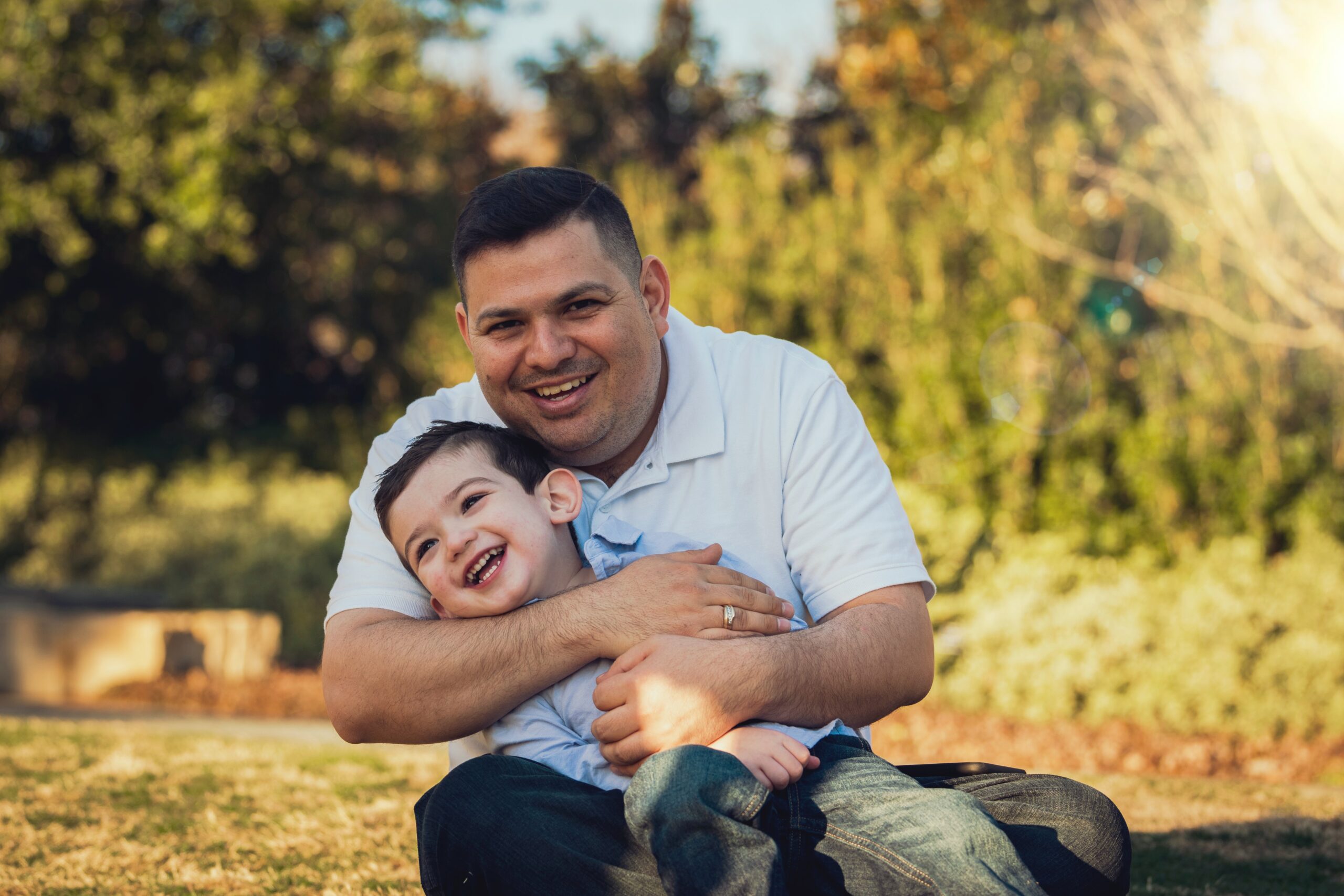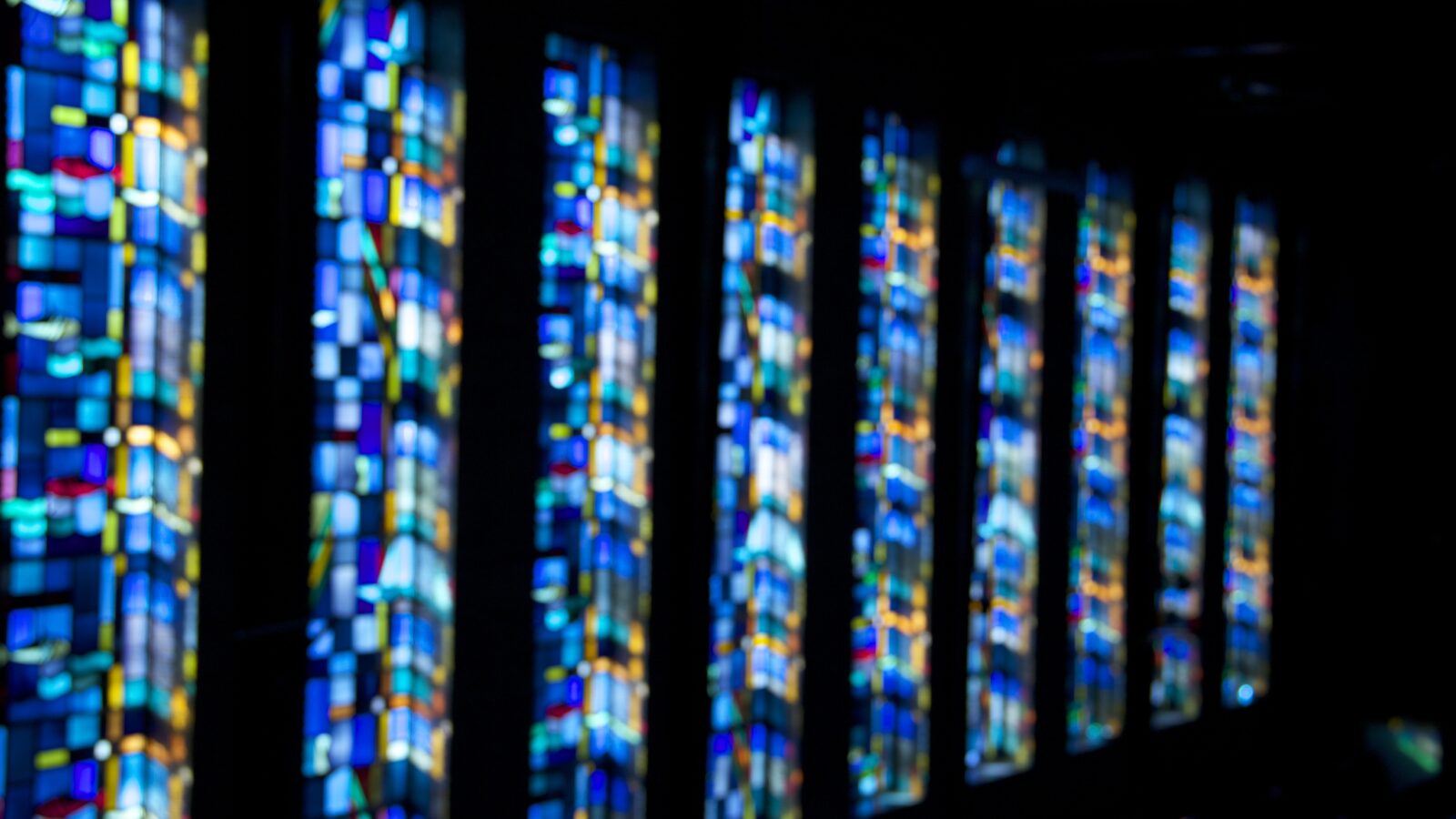Talking about Race—Is It Ever Too Early?

1061
In the past, we’ve thought that simply modeling fair treatment for all would be enough for our kids to grow up without prejudice. Research shows, however, that race must be talked about, and at an earlier age than you might expect. This week, 5th-6th Grade Children’s Ministry Coordinator Megan Hendricks and Sr. Director of NextGen Ministries Laure Herlinger team up to address the issue of talking to your kids about race.
In the past week, many conversations have been taken place about race and justice. News sites and social media send conflicting messages about racial issues in our country. Should we have these difficult conversations with our little ones, or should we wait until they are developmentally ready to understand complex issues about race? How do we begin the conversation?
A common opinion holds that children are born colorblind. According to research, children notice and internalize race and bias much younger than we might expect. Infants begin to notice racial differences as early as six months. By the preschool years, children are forming conclusions about the world. While children can categorize people based on characteristics, they are unable to comprehend the complexity of multiple characteristics. They begin to draw inferences based on race, as they see which races are more often associated with privilege or preference, and which are not. Children begin to form ‘rules’ about which characteristics are desirable. They may do this internally without any direct adult interaction based on their observations.
If children are picking up cues and forming rules about race, even without direct adult input, it becomes even more important for parents to speak with their children about racial issues. We may hold back because of a child’s age, or because we don’t know what to say. Experts agree that having conversations about race helps kids to recognize their unreliable or biased conclusions. As parents, we may be hesitant about having these difficult conversations, but we know that systemic racism must be curtailed early on.
As Christian parents, where do we start? If we look only to experts in the fields of sociology or education, we will still miss out on the fundamental issue of the sin of racism and its ultimate solution found in Christ. Here are some foundational biblical truths to teach your children about race:
God has created a beautiful diversity of races and all of them bear His image and are made to reflect His glory. The Bible teaches that all races and ethnicities are derived from the single origin of the first humans: “From one man he made all the nations, that they should inhabit the whole earth” (Acts 17:26). Instead of dismissing our racial and ethnic differences, we can acknowledge our differences, and affirm them as equally beautiful expressions of the Imago Dei, the image of God.
Racism, as with all sin, entered the world through the Fall. With Adam and Eve’s rejection of God’s ways, all manner of division and strife were born. The sin of exalting one race over any other is a part of this strife, and has no place in the kingdom of God. It is counter to God’s intent in creation–that His people enjoy fellowship with Him and with one another.
As Christians we reject racism as an attack against our unity in Christ. “If one part [of the Body] suffers, every part suffers with it” (1 Corinthians 12:25). Since we are called to be a body with Christ as our head, we cannot ignore the pain felt particularly by some members of the body; this breaks the unity that should be our witness to the world (John 17:23). This calls us to lament over injustice.
Empowered by the Holy Spirit, we work for reconciliation and justice. As believers, we understand that, at the cross, Jesus paid for our sin and broke its power over us. When we come to faith, He gives us His Holy Spirit, which empowers us to forgive, and also empowers us to speak for justice and work for change. “Is not this the kind of fasting I have chosen: to loose the chains of injustice . . . .?” (Isaiah 58:6). Our faith is shown in our deeds.
At Eastbrook Church, one of our core values is that of becoming a Revelation 7 church, a place that displays the diversity of God’s kingdom worshiping in unity (Revelation 7:9). Real change is often slow, but must be persistent. By starting the conversation from early on, keeping a Kingdom focus, we may be able to overturn deeply imbedded attitudes and display the beautifully diverse family that God originally intended.
Recommended reading:
“Children are not Colorblind: How Young Children Learn About Race”, Erin. N. Winkler, Ph.D., PACE Vol. 3-No. 3. HighReach Learning Inc., 2009.
For Children:
God’s Very Good Idea: a True Story about God’s Delightfully Different Family by Trillia Newhall, illustrated by Catalina Echeverri. The Good Book Company, 2017. This is a picture book, best used for children 4-6 years old.
The Gospel in Color for Kids and The Gospel in Color for Parents by Curtis A. Woods and Jarvis J. Williams, illustrated by Rommel Ruiz. Wearepatrol.com, 2018. This two-volume set can be used for a parent-child Bible study for children 6-9 years old, or the kids’ edition used independently for kids 10-12.
The Pastor’s Forum on Race in America
VBS 2020
 VBS is coming to your home! Please register here by June 20th to pick-up your FREE VBS kit. Each kit includes 5 sessions of Bible content and related activities, an optional digital component, supplies for crafts and games, t-shirts, and some fun extras! Preschool and Older Kid options are available also.
VBS is coming to your home! Please register here by June 20th to pick-up your FREE VBS kit. Each kit includes 5 sessions of Bible content and related activities, an optional digital component, supplies for crafts and games, t-shirts, and some fun extras! Preschool and Older Kid options are available also.
On July 6 from 1-3pm and July 7 from 6-8 pm, we will be having a VBS Kick-off Celebration, where you and your kids can pick up the kits, enjoy games and a treat, and visit with our children’s ministry staff. Please join us! For more information, please contact Laure at lherlinger@eastbrook.org.
We Want Your Feedback!
 Please take a few moments to fill out this brief survey to share your thoughts on your Eastbrook at Home experience, and on the plan for reopening church.
Please take a few moments to fill out this brief survey to share your thoughts on your Eastbrook at Home experience, and on the plan for reopening church.
Recommended Posts
Eastbrook Kids · Promotion Sunday
August 26, 2020

A Second Look at the Fatherhood of God
June 18, 2020

Reopening Church: What It Means for Kids
June 11, 2020


